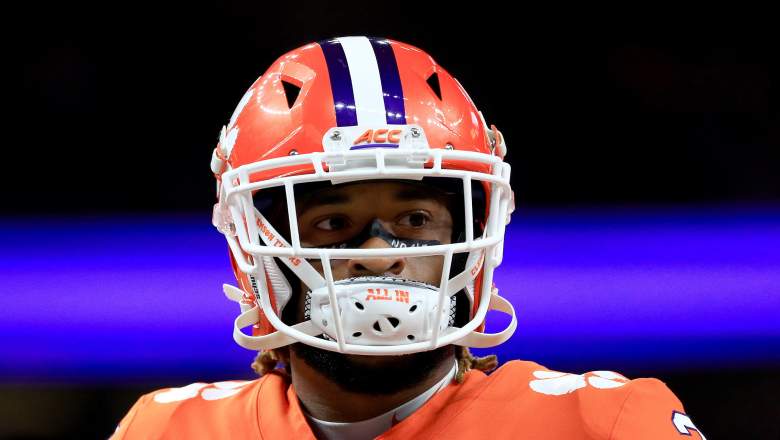Moments earlier, Josh Hawley – a Missouri senator and outspoken supporter of Trump’s phony victory in the 2020 election, who offered a raised fist to those gathered outside the Capitol building hours before the mob began the violence and breached the building’s defenses – reacted to the news that Simon and Schuster had decided to end the book deal on Twitter. He couldn’t be more Orwellian than what he wrote. From now on, only the approved speech can be published. It’s the left that wants to abolish anyone who disapproves. I’m going to fight this cultural abolition with everything I’ve got.
On Wednesday, Anthony Shaffer, a retired military intelligence officer and Trump campaign adviser, accused Evan Davis of using Orwellian language to change what happened when Davis described the president as inspiring an uprising, a riot, a violent attack on Congress.
Orwell was against censorship, not only official state censorship, which was clearly undesirable, but also informal media censorship. As he wrote in an unpublished essay on press freedom from 1943: When publishers and editors try to prevent certain things from being published, it is not for fear of prosecution, but for fear of public opinion. In this country, intellectual cowardice is a writer or journalist’s greatest enemy.
But if Orwell was against censorship, he abhorred the corruption of language by political leaders who try to hide questionable or immoral acts behind the soothing language of bureaucracy and jurisprudence or the emotional language of patriotism. One of Orwell’s deepest frustrations is that, during his lifetime, political speech and writing became largely a defense of the indefensible. Orwell probably wouldn’t have supported Trump’s depletion or Hawley’s termination of his book contract. But he would probably also despise the two men for their cynical abuse of the English language.
It would have been more direct to respond to Schaffer’s dishonest attempts to use his name to characterize the events of the Sixth World War. delegitimize January. In his classic 1946 essay, Politics and the English Language, Orwell wrote that political language – and this applies with variations to all political parties, from conservatives to anarchists – is designed to make lies true, murders respectable, and give the appearance of solidity to a clean wind.
The term Orwellian, when used correctly, is an abbreviation of twisted language used to hide the truth and protect the indefensible, the most succinct example being the government’s mantra in Orwell 1984 : War is peace. Freedom is slavery. Ignorance is power. 1984 is not only an accusation of totalitarianism, but also an accusation of suppression of simple truth through political duplicity. It is a warning of the danger that society faces when rebellion, insurrection and violence are rewritten as patriotism and protest.
The tweets from Trump Jr. and Hawley were uploaded to my feed as I was wrapping up the George Orwell Undergraduate History Seminar and the Creation of the Modern World program, in which Orwell describes the beginning of the 20th century. This is not the first time I have been reminded of the continuing relevance, and by extension, the relevance of what his work reveals about the importance of truth and language in political discourse in America and beyond.
I now teach in the United States, but my first Orwellian lesson took place in the United Kingdom in 2016, when that country was in the throes of a fierce referendum campaign on Britain’s departure from the European Union. The Brexiteers are famous for their campaign with a giant red bus with the slogan We send the EU £350 million a week. Let’s fund our NHS instead.
It was a deliberately flawed equation that the money saved by leaving the EU would be readily available for investment at home – like Big Brother 2 + 2 = 5 in Orwell’s book 1984 – but which the Remain camp didn’t seem to neutralise. The distortions and lies of the Brexit campaign have only underlined the relevance of Orwell’s quip that intellectual honesty is a crime in any totalitarian country; but even in England, telling and writing the truth is not exactly profitable.
Four years later, I was teaching in America. This time, my students and I discussed Orwell in the context of a presidency often labeled Orwellian by the left because of his adherence to lies and alternative facts, but also in the context of an emerging culture of political left-wing reversal that is considered Orwellian by public figures far more credible than Senator Hawley.
I can tell you that the extremist political rhetoric of the 2020 election campaign and the rise of demagoguery and totalitarianism around the world have only increased student interest in Orwell; the course I am completing is full and I have a waiting list.
I first read George Orwell in high school, in the latter days of the Cold War, when Animal Farm was seen as an ideal means of teaching American students the dangers of Soviet totalitarianism and instilling in them the virtues of the American desire for freedom of speech and protection of political dissidents. Then I read 1984 in high school English class, where my teacher made analogies between Big Brother and Joseph Stalin and the cult of personality, and linked Newspeak and Room 101 to Soviet censorship and torture and oppression in the gulag.
Donald Trump Jr. is a year older than me. Josh Hawley is a year younger. For American children of our generation, the Orwell we learned in high school was a cold warrior, an anti-communist crusader against police thinking and dictatorial oppression. If I had left Orwell in high school, I could imagine sympathizing with Trump and Hawley’s statements that their First Amendment rights were being suppressed by the leftist media they thought was Orwell. Because, to quote the inscription next to the Orwell statue outside the London headquarters, if freedom means anything, it’s the right to tell people what they don’t want to hear.
But I haven’t given up on Orwell yet. In college I read Orwell’s denunciations of racial oppression, based on his own experiences as an imperial officer in Burma, as well as his writings on unemployment and poverty in Britain and France. I especially read Homage to Catalonia, Orwell’s memoir of his decision to voluntarily join the Trotskyist party POUM in Spain to defend the Spanish Republic against Franco’s coup, only to discover later that the POUM’s greatest enemy was probably not Franco, but the Stalin-backed republican government, determined to destroy its POUM allies through physical persecution and virulent propaganda.
Orwell’s memoirs were intended to dispel propaganda and rehabilitate the POUM’s reputation as a champion of democracy. To his horror, he discovered that his publisher, Victor Gollancz, would not publish the book even if he accepted the truth of Orwell’s story, for fear of angering the Stalin-backed government and undermining the Republican cause. Orwell, like Hawley, had his book contract dissolved and eventually published the book through a small publisher who shared his political sympathies.
The more I read Orwell in my youth, the more I realized that Orwell was committed to defending truth rather than freedom of speech. In the world of 1984, where Big Brother insists that 2+2 = 5, freedom is the freedom to say that two plus two equals four.
Orwell’s 1984 was published in 1949 and is set not in communist Russia but in Oceania, a dystopian Anglo-American superpower constantly at war with Russia (Eurasia) and China (Istria). By situating his novel in the British version, Orwell emphasizes that political oppression and dishonesty are not reserved for Soviet totalitarianism.
The students in my class this spring were born long after the end of the Cold War. Their interest in Orwell probably stems not so much from his political significance as an anti-communist platform as from the question of whether today’s political culture, with its silos of information, lies and alternative facts, has become the dystopian nightmare that Orwell foresaw.



